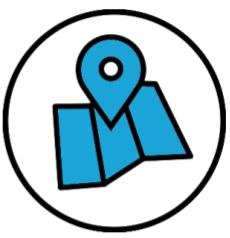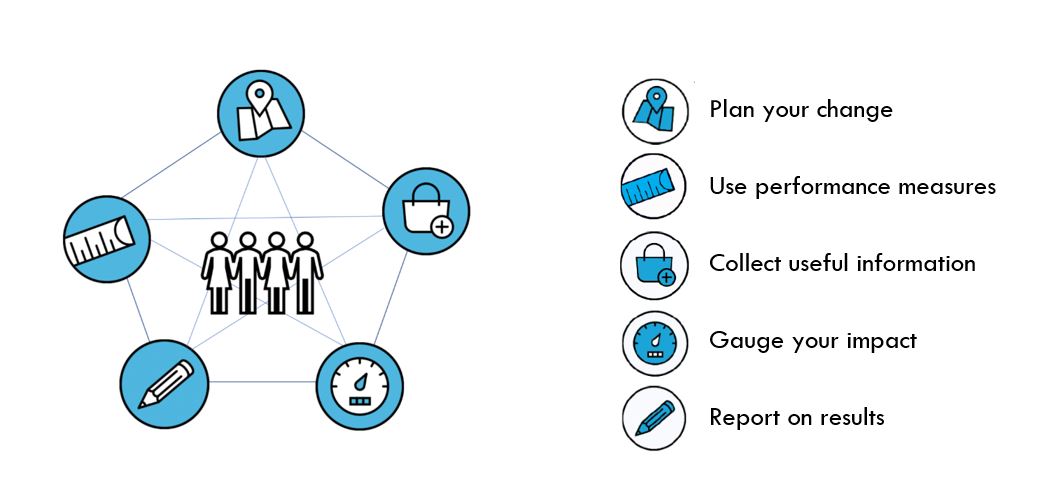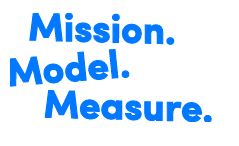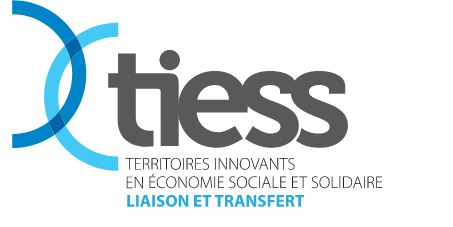Demonstrating Value Blog
You may notice that the Demonstrating Value website has a vintage look on the internet! Since we first launched the site in 2009 half a million people have found their way to our site. We have worked with many amazing community-based organizations over the years, and have shared the framework at 109 events with nearly 3,000 attendees.
You may also notice that the current website is a 'static'. Stay tuned for a new website next year that will simplify our resources, while holding true to the vision that the data and impact measurement at its core must be driven by the needs and capacity of community-based organizations.
 In the space of weeks, countless community-based organizations have had to shift what they are doing while being faced with reduced staff hours, fewer volunteers, disruptions to revenue, social distancing restrictions and other constraints. Yet the demand and need for many services that non-profits and social enterprises deliver are high. New needs are emerging, and many programs are being introduced. Across the community – in health care delivery, social services, education, to name a few – we are witnessing a great deal of creativity and experimentation in (re)designing programs.
In the space of weeks, countless community-based organizations have had to shift what they are doing while being faced with reduced staff hours, fewer volunteers, disruptions to revenue, social distancing restrictions and other constraints. Yet the demand and need for many services that non-profits and social enterprises deliver are high. New needs are emerging, and many programs are being introduced. Across the community – in health care delivery, social services, education, to name a few – we are witnessing a great deal of creativity and experimentation in (re)designing programs.
Impact and performance measurement practices that rely on clearly articulated goals, a plausible theory of change, and attention to performance metrics attached to goals, are not particularly useful in this complex and rapidly...
 By planning your intended change, you’re breaking down the big, awesome visionary change that is very challenging to measure, into more immediate and visible steps. In this way, impact measurement is more possible and useful. It’s also about breaking out what you can influence and then making the link between that and the bolder, systems-level change that you seek. Mapping out your intended change can really help you focus on what you should and could influence. It can also demonstrate your value and engage others in your mission.
By planning your intended change, you’re breaking down the big, awesome visionary change that is very challenging to measure, into more immediate and visible steps. In this way, impact measurement is more possible and useful. It’s also about breaking out what you can influence and then making the link between that and the bolder, systems-level change that you seek. Mapping out your intended change can really help you focus on what you should and could influence. It can also demonstrate your value and engage others in your mission.
This blog explores how to plan your intended change, one of the five Common Foundations to Impact Measurement. This is the first of a five part blog series that exmines...
A goal of impact measurement is to be able to clearly identify and measure the net, positive effects that result directly from the activities of an initiative, program or social enterprise. This could make it clearer for impact investors about what they invest in, what strategies and models are most effective, and how to replicate and scale what matters.
Clearly establishing net impact and the influence of a program’s activities on an outcome has been a huge challenge in this field. A ‘gold standard’ of research and evaluation, the randomized control trail, is often held up as the standard to which we should aspire. (For example, see NESTA’s Standards of Evidence.) In a nutshell, two groups of people are chosen at random, and only one participates in new program, while the other does not. (A variation of this is where multiple groups are involved). Participants in the...
What do hundreds of tools, frameworks, guides, templates and other resources on impact measurement have in common?
A limited number of fundamental practices!
This is what The Common Approach to Impact Measurement, an initiative led by the Carleton Centre for Community Innovation, discovered in examining 500+ impact measurement resources, international standards and in consulting directly with social enterprise and social finance organizations. They have synthesized and defined these essential practices as The Common Foundations of Impact Measurement.
The Common Foundations of Impact Measurement practices are:

I described this amazing, bold project in a blog last summer, and since then I...
The Common Appoach to Impact Measurment, an initiative led by Carleton University's Centre for Community Innovation is convening a community of non profits, social purpose organizations (SPOs), grant makers, investors and academics to build a better way to measure social impact. The initiative is profiled in this blog posting last summer.
The Canadian Community Economic Development Network (CCEDNet) is hosting a free webinar on March 12 at 1:00 pm (Eastern Daylight Time) to introduce the Common Approach. In this webinar, they will explore how the Common Foundations were derived and how they can help evaluators, consultants, and trainers guide organizations to improved impact measurement. You can also find out more about a...
This blog is the third in a series that highlights collaborative projects in Canada that have sought to make sense of impact measurement for social enterprises and other community-based organizations, and to advance new tools and common methods.

Mission. Model. Measure. is a new web guide developed through the Social Enterprise Ecosystem (S4ES) project, which is a partnership between the Canadian Community Economic Development Network, the Chantier de l'économie sociale, Buy...
This blog is the second of a series which highlights collaborative projects in Canada that have sought to make sense of impact measurement for social enterprises and other community-based organizations, and to advance new tools and common methods.

The Common Approach to Impact Measurement is a community of non profits, social enterprises, grant makers, investors and academics “building a better way to measure social impact.” It emerged from Ontario’s Social Enterprise Strategy 2016-2021 that led to the creation of an Impact Measurement Task Force. The task force resulted in a report which recommended a ‘common approach’ to impact measurement that is intended to provide a foundation for sector-...
In recent years, many new initiatives have been launched in Canada that have sought to make sense of impact measurement for social enterprises and other community-based organizations, and to advance new tools and common methods. In a series of blogs, we highlight collaborative projects in Quebec, Ontario and as part of a national partnership to strengthen the social enterprise 'ecosystem'.

The first blog is about a project that has been underway since 2016 that is led by TIESS (Territoires innovants en économie sociale et solidaire), which is an umbrella group in Quebec that supports the social economy through the sharing and dissemination of knowledge, practices, experience and research. The project is named Evaluation and Impact Measurement in the Social Economy (Évaluation et mesure d’impact en économie...
TIESS (L'organisme Territoires innovants en économie sociale et solidaire) is organizing a one-day forum to discuss impact measurement practices, as well as its challenges and opportunities. Several international initiatives and viewpoints will be presented in order to bring out points of convergence around which we can mobilize. The event also includes and unveiling of the Quebec Declaration on Evaluation and Social Impact Measurement.
To learn more about TIESS's work on evaluation and social impact measurement of the social economy, click here (in French only).
For more information and tickets, click here.
----------
Preliminary program
Welcome speech by Robert Beaudry, executive...
